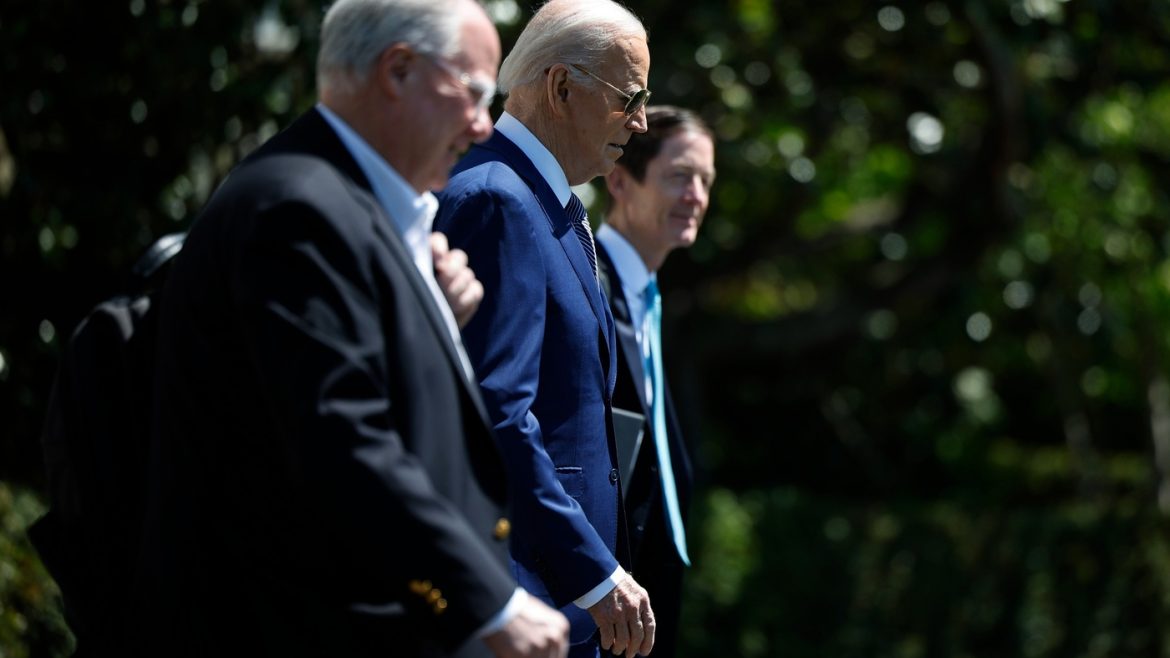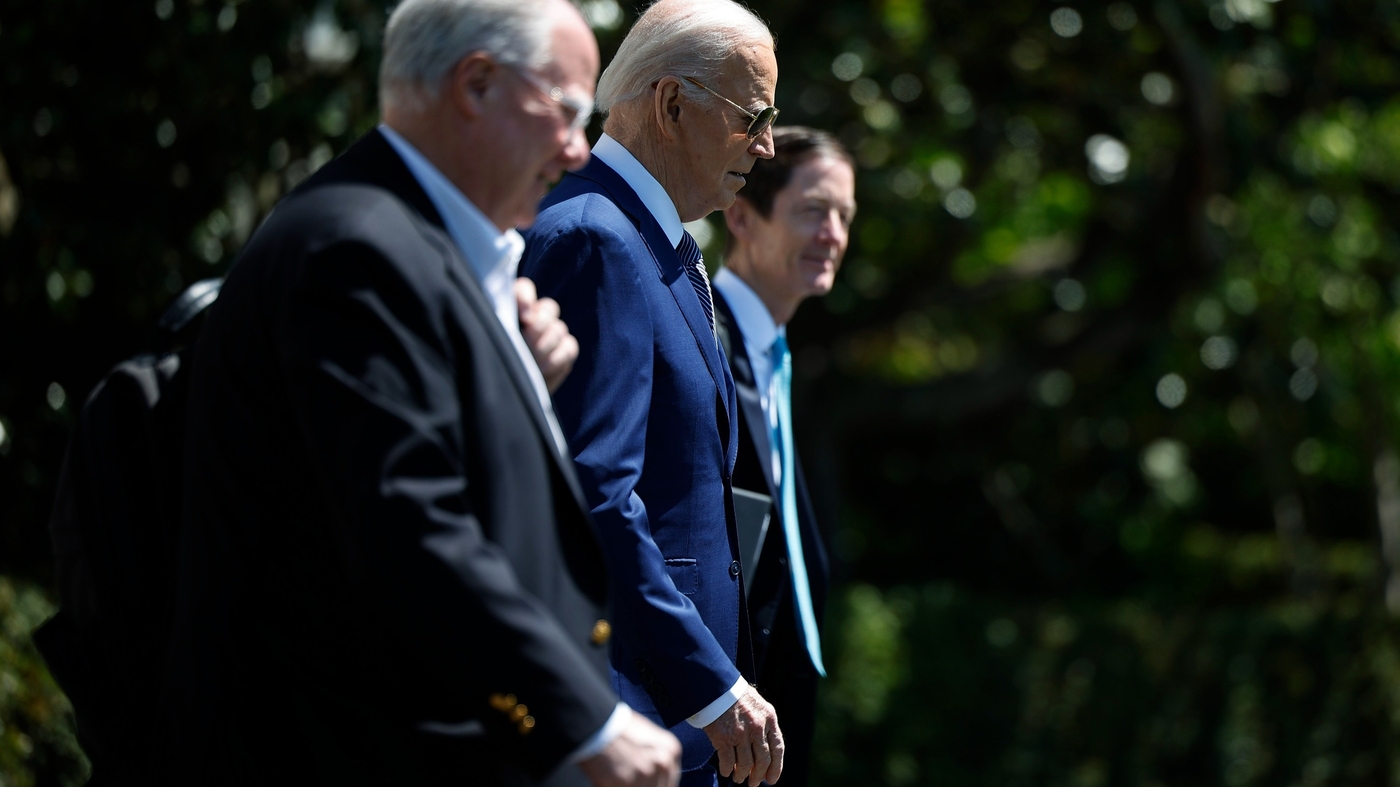Unveiling a Troubling Narrative: President Biden’s Alleged Decline and Its Concealment
Recent media discourse and a newly published book have thrust the health and cognitive status of former President Joe Biden into the spotlight, raising unsettling questions about transparency, political strategy, and the governance implications of a leader’s physical and mental well-being. Across multiple journalistic accounts and insider reports, a compelling narrative emerges: a sustained effort by Biden’s inner circle to shield the public and even some members of his own staff from the president’s deteriorating health.
—
The Core Allegations: Cognitive and Physical Decline in the Spotlight
The focal point of these revelations is the book *Original Sin: President Biden’s Decline, Its Cover-up, and His Disastrous Choice to Run Again*, authored by CNN’s Jake Tapper and Axios’ Alex Thompson. Drawing on roughly 200 interviews with aides, insiders, and close observers, the book depicts a president whose cognitive abilities and physical health declined more severely than publicly acknowledged during his term. The descriptions range from struggles with mental acuity to serious physical concerns severe enough that aides reportedly discussed the potential use of a wheelchair should Biden secure a second term.
Statements from multiple sources paint a picture of Biden becoming “a shell of himself,” with aides and family members portrayed as operating in denial or engaging in active concealment. This raises critical questions not only about Biden’s capacity to govern effectively but also about the ethical dimensions of information control in the highest office.
—
Aides’ Role: From Shielding to Denial
A recurring theme across the reports is the role of the president’s closest aides and inner circle. These individuals are depicted as strategically “shielding” Biden in meetings and public appearances, purportedly to preserve the image of a fully capable leader. At one “rare meeting,” a third secretary was reportedly shocked by Biden’s behavior and cognitive lapses, underscoring how concealed and compartmentalized these health issues were even within the administration.
The aides’ actions are described as an intentional cover-up — a management of perception that emerged from fear of political fallout, concern over public confidence, and possibly ideologically motivated self-censorship by Democratic officials reluctant to engage with their leader’s vulnerabilities. Notably, some Democrats are reportedly still hesitant to discuss the extent of Biden’s decline publicly, indicative of ongoing intra-party discomfort with frank assessments of the president’s condition.
—
Political and Ethical Implications
The revelations carry significant weight in evaluating the democratic process and voter rights to informed decision-making. The alleged suppression of information about Biden’s health status intersects with democratic ideals around transparency, accountability, and the electorate’s right to fully understand the capabilities of candidates and incumbents.
Moreover, the issue touches on the broader political culture surrounding aging leaders. Biden, the oldest president in U.S. history, has consistently faced scrutiny over age-related concerns. Yet, many aides have dismissed such worries as partisan attacks, complicating a clear understanding of when health discussions cross from political weapons into genuine governance concerns.
This tension reflects a fraught balance between respecting privacy, protecting political interests, and ensuring the voter’s entitlement to essential information — a balance apparently disrupted here in favor of political expediency.
—
Public and Political Reaction
Responses to the book and its claims have been mixed and at times heated. Some Democratic strategists, like David Axelrod, described the allegations as “troubling,” acknowledging the seriousness of the reported cognitive decline. Meanwhile, White House aides have categorically rejected the narrative of a cover-up, defending Biden’s fitness and accusing detractors of exaggeration or politically motivated character attacks.
Media backlash has also emerged against Jake Tapper and others who contributed to the book, underscoring a divisive atmosphere around discussing presidential health. Liberal commentators express concern that such portrayals could weaken Biden’s legacy or political standing, while critics argue these disclosures are necessary to confront reality.
—
Historical Context and Comparisons
The episode hearkens back to historical precedents wherein presidents faced health crises or cognitive challenges but maintained political narratives that obscured or downplayed those issues. Unlike previous eras where information was less accessible, today’s 24/7 media environment and digital documentation make such concealment more challenging — yet the conversation demonstrates that political teams still endeavor to control the narrative tightly, sometimes at the expense of transparency.
Additionally, the concern over Biden’s condition touches on a broader demographic reality: as leaders age, societies worldwide confront questions about how age and health intersect with democratic leadership and succession planning.
—
Conclusion: Unraveling the Intersection of Leadership, Transparency, and Political Strategy
The allegations documented in *Original Sin* and echoed across various news outlets reveal more than just a story about one president’s health; they spotlight systemic challenges in political communication, governance, and democratic norms. The suggestion that Biden’s aides knowingly obscured his physical and cognitive decline from voters poses difficult questions about the accountability mechanisms within political institutions and the media’s role in uncovering truths.
Leaders are human, vulnerable to the frailties of age and illness. Yet, the handling of such frailties matters profoundly in a democracy. Concealment strategies, no matter how well-intentioned, risk eroding public trust and undermining the very foundations of electoral legitimacy. This narrative, still unfolding, invites ongoing scrutiny into how transparency and truthfulness about a leader’s capacity are balanced against political imperatives — a balance that is critical for the health of democracy itself.


